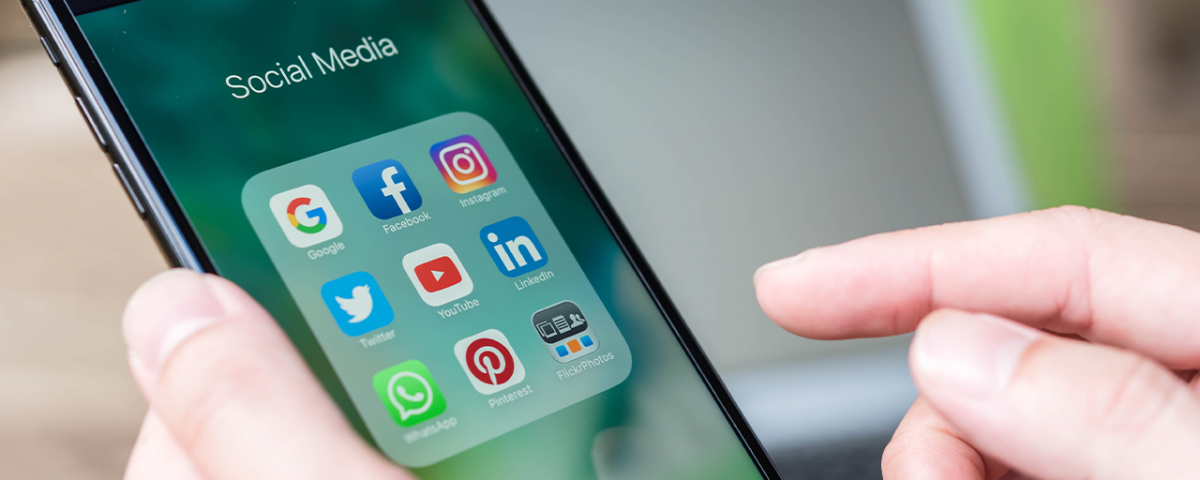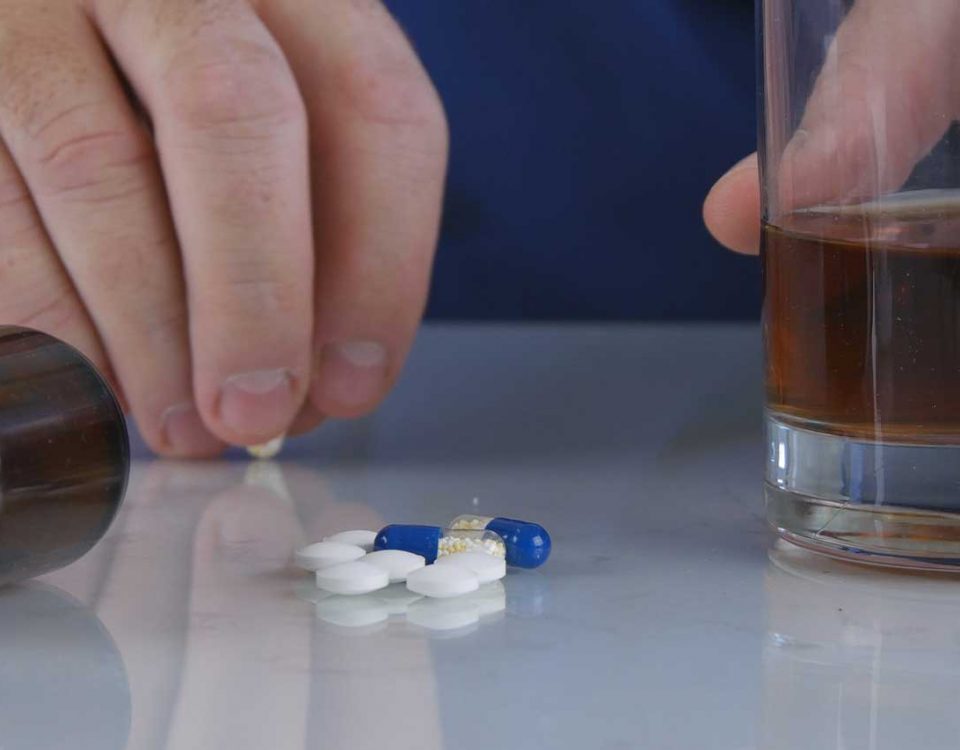While “swiping right” on modern dating apps like Tinder, Hinge, and Bumble can bring users one step closer to matching with a potential partner, online drug dealers in Florida are abusing this opportunity to sell drugs and line their pockets. Detectives with the Polk County Sheriff’s Office claimed that 52 people used LGBTQ+ dating apps Grindr, Scruff, and Taimi to sell drugs like methamphetamine, cocaine, fentanyl, marijuana, and others.1 Considering the continuous advancements in technology, it’s no surprise that people are buying drugs on social media.
Operation “Swipe Left for Meth”: Cracking Down on Online Drug Dealers
Detectives in the Polk County Sheriff's Office created undercover profiles on dating apps and were able to buy nearly a pound and a half of marijuana, one of the most commonly sold drugs in the U.S., as well as 280 grams of methamphetamine online. An undercover operation called “Swipe Left for Meth” displayed how people have been using apps to buy drugs and how online drug dealers have been promoting their products on their dating profiles.
From this operation, law enforcement learned that people buying drugs on Grindr and similar apps only had to swipe left on a photo to express their interest or send a direct message to the user, with little to no moderation from the platform. For instance, Grindr – self-described as the world’s largest social networking app for LGBTQ+ people – saw more online drug sales than the other two investigated apps, Scruff and Taimi.
While neither Grindr, Scruff, nor Taimi allows users to buy illegal drugs or promote drug use on the site, plenty of users have accused the apps of not doing enough to police discreet drug peddlers. Additionally, while users across all platforms are encouraged to report any suspicious activity to law enforcement, many profiles end up slipping through the cracks.
Commonly Used Apps to Find Drugs
People used to order illegal drugs online all the time through the dark web and common websites like eBay and CraigsList. But with this new wave of technology, online drug dealers and users have more freedom to do as they wish.
Online Language and Emojis Used for Drugs
A major pattern that law enforcement has noticed is the use of so-called “drug emojis,” which is the use of emojis and other forms of code to promote and buy drugs online. Individuals using apps for finding drugs or trying to sell drugs online may discreetly use emojis and code words to conceal their sales and inquiries.
Usually, apps will have algorithms set in place that flag or delete content that explicitly discusses drugs before users see it. For instance, you might have noticed that anytime words like “vaccine” or “COVID” are used in posts or mentioned in videos, the app adds a banner at the bottom of the image or video that offers resources to users.
A typical loophole for online drug dealers and buyers to avoid detection or having their content removed is to use emojis or other code words. Common examples of emojis used for drugs include:
- Cocaine: Snowflakes, snow, house key, snowman, and a pool eightball
- Crystal methamphetamine: diamonds
- Heroin: brown heart and green snake
- MDMA and Molly: red heart, lightning bolt, red X, yellow and red pill, and red candy
- Cough syrup: purple grapes, purple heart, and baby bottle
- Marijuana: a puff of smoke, fire, palm tree, pine tree, and four-leaf clover
- Drug dealer or “drug plug”: electrical plug, money bag, and money
- The universal sign for drugs: maple tree leaf
- A large batch of drugs: chocolate chip cookie
These emojis may signify the amount of the drug, the type, the potency, and the purity. Recognizing the underlying meaning of emojis is imperative to monitoring and identifying online drug sales.
However, emojis aren’t the only code online drug dealers and buyers are using to make their transactions. Individuals can just look for a capital “T” in bios. Profiles that include a random capitalized T or acronyms in the title or bio are actually signaling they have an interest in “Tina” – a street name for meth.
This capitalization may also appear in terms like “parTy and play” or “PNP,” which is used by some people in the LGBTQ+ community to describe a sexual encounter while under the influence of drugs. Some Grindr users have even reported receiving countless messages from other users asking them to participate in “PNP.”
Buying Drugs Online: Risks to Consider
One of the major risks of purchasing drugs online is potentially buying laced or fake substances. Fake prescription pills, commonly laced with fentanyl and methamphetamine, are sold across most social media platforms, making them widely attainable.
This accessibility is alarming on multiple fronts, but the biggest concern is the risk of lethal overdose. Fentanyl is an especially potent and dangerous drug that many dealers use to lace their products with.
According to the Drug Enforcement Agency (DEA), 4 out of every 10 pills contain a lethal dose of fentanyl, a drug that’s 50 to 100 times more potent than morphine.2 Often, people buying drugs online or in-person trust the dealer and the product, but many dealers cut their products with substances like fentanyl to lessen production costs and make their products more addicting.
In addition to the increased risk of overdose and death, there’s also a risk of falling into legal problems. For instance, being caught with unprescribed Adderall can lead to fines and even jail time, so imagine getting caught with marijuana or cocaine. Additionally, being able to buy drugs online only contributes to the risk of exposure and increases the reach of drug distribution.
How People Buy Drugs Online
In addition to using dating apps to sell and buy drugs, users and online drug dealers are starting to use platforms like Snapchat and Instagram, as well. Buying drugs on Snapchat and Instagram has been made easier due to the nature of social media and its algorithms.
The purpose of social media algorithms is to push content that they believe an individual wants to view based on their activity on the platform. For instance, if users are actively searching for a particular drug through hashtags, they’re likely to connect with another dealer or another user who’s affiliated.
Once this point of contact is reached, it only takes a few direct messages to make a sale. Additionally, the disappearing chat and photo feature on Snapchat can make some drug deals virtually untraceable. Also, innovative features like hashtags, trending pages, “Quick Add” contacts, and disappearing direct messages can all contribute to mass drug distribution that law enforcement struggle to trace.
Get Help for Drug Use Now
While most apps try their best to limit drug distribution, preventative measures are based on an honor system in which users are expected to report other users who are showing signs of selling or purchasing drugs. Police departments across the nation are doing their best to crack down on dating apps, Instagram, and Snapchat drug dealers.
But the need for change doesn’t end there. If you or someone you care about has fallen into drug addiction, our Texas recovery center offers various levels of addiction treatment that can help. With substance-specific detox programs and treatment, clients are set up with individualized treatment plans to ensure that they’re provided with the right services to treat their symptoms.
In addition to treatment for the physical and psychological repercussions of substance abuse, our Texas treatment center also offers family therapy to help clients make amends with loved ones they may have hurt and build a strong support system at home.
Recovery is possible for everyone. To learn more about our Texas drug and alcohol treatment and how we can help, call Banyan Treatment Centers today at 888-280-4763.
Sources:
- NBC News - 'Swipe left for meth': Florida officials using dating apps to try to find drug dealers
- DEA - Counterfeit Pills Fact Sheet
Related Reading:









